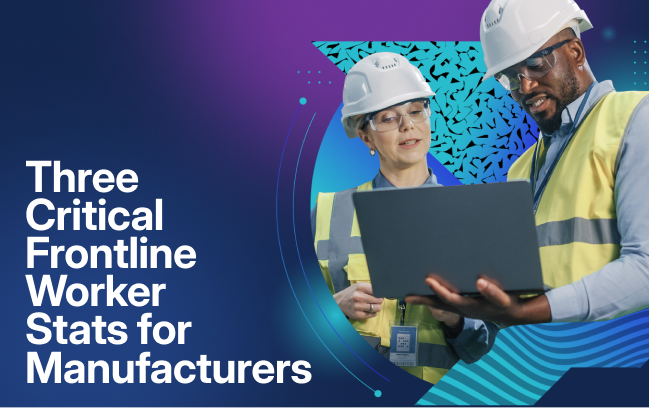August 22, 2024
2 Min. Read

Safety, precision, and efficiency are paramount in the construction industry. What’s often overlooked, however, is the equally important need for continuous learning and skill development among employees at all levels.
As the industry continues to evolve and construction firms adopt more sophisticated technology, it’s critical to provide comprehensive, personalized learning opportunities throughout the employee lifecycle to prepare them for success and encourage ongoing skill development.
A new report from Schoox and Lighthouse Research & Advisory illuminates critical areas of focus for construction firms that want to leverage learning and development (L&D) to ensure safety, improve productivity, enhance the employee experience, and boost business performance. Let’s examine three key findings from the research.

1. Better Frontline Training for Construction Workers
Only 62% of construction workers have clarity into role expectations.
The construction sector is known for its high-stakes environments and physically demanding work. Unlike office-based businesses, construction projects often involve mobile teams working on hazardous job sites, sometimes for extended periods. Moreover, the industry’s focus on safety, coupled with the need for specialized skills and knowledge, makes training a critical component to success.
According to the data, however, only 62% of construction workers have clarity into role expectations—an alarming statistic in an industry where safety, precision, and coordination are essential.
When employees are unsure about what’s expected of them, they may hesitate to take action or waste time figuring out what to do. A lack of clarity around job responsibilities can lead to employee dissatisfaction, incorrectly performed tasks, safety and compliance risks, and costly mistakes. Construction firms need to take a systematic approach to defining, communicating, and reinforcing role expectations.
Centralized learning can play a crucial role here. Construction firms should consider providing frontline employees with mobile access to role-specific training materials and greater visibility into their skill levels and performance to reduce confusion and increase productivity.
2. Effective Onboarding
Onboarding training is more important to construction workers than any other frontline industry.
The construction industry’s unique emphasis on onboarding training speaks volumes about the sector’s recognition of the critical nature of early skill development. Effective onboarding goes beyond mere orientation; it sets the foundation for safe work practice and high performance.
For construction firms, comprehensive onboarding is essential for:
- Safety: New workers must immediately receive training around site-specific hazards and safety protocols.
- Quality Control: New hires must understand project specifications and quality standards from day one.
- Team Integration: Construction projects often involve complex coordination between various trades and teams.
Better onboarding training ensures each new employee is prepared for success. Combining a robust onboarding program with continuous learning also encourages regular reinforcement of key concepts and ongoing skill development.
3. Safety and Compliance Training
One in four construction workers don’t get the training they need to perform their jobs safely.
In a sector where workplace accidents can have severe consequences, ensuring that every worker receives adequate training is not just a matter of compliance—it’s a moral and financial responsibility.
The repercussions of inadequate safety training extend far beyond the immediate risk to employees. They include potential legal liabilities, increased insurance costs, project delays, and damage to a company’s reputation. An unsafe workplace will likely lead to lower employee morale and higher turnover rates.
An LMS can be a game-changer in addressing critical safety training gaps. Here’s how:
- Consistent Delivery: An LMS ensures that all workers receive the same high-quality safety training, regardless of location or shift.
- Regular Updates: As safety regulations and best practices evolve, an LMS allows construction companies to quickly disseminate updated information to the entire workforce.
- Trackable Compliance: Managers can easily monitor which workers have completed the required safety training and identify those who need additional support.
- Interactive Learning: Modern LMS platforms offer engaging, interactive safety training modules that can improve information retention and application.
A commitment to comprehensive learning and development doesn’t just mitigate risks—it enhances project outcomes, boosts worker morale, and solidifies a company’s reputation in the competitive construction landscape. Construction firms that prioritize effective training and leverage modern learning technology will be best positioned to attract top talent, improve safety, and consistently deliver high-quality results.
Check out our full Frontline Worker Skills Growth and the L&D Disconnect report to learn more about frontline workforce training for construction companies.


